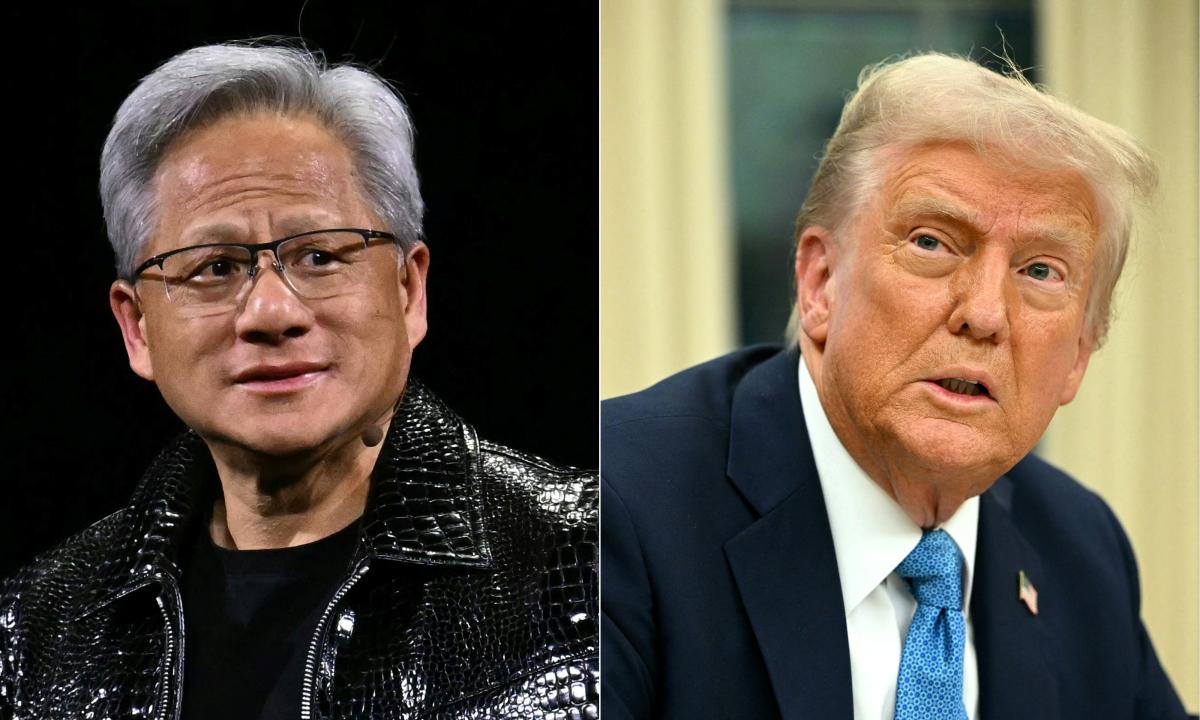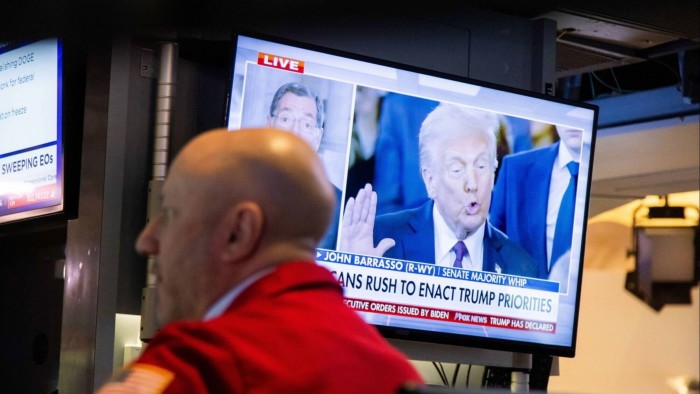Investors are bracing for stock market falls after Canada and Mexico hit back against trade tariffs imposed by Donald Trump this weekend.
Trading on the brokerage IG’s weekend markets indicate shares are likely to fall on Monday, after the US president signed an order on Saturday to bring in sweeping tariffs this week, a move that could prompt a trade war with some of the country’s largest trading partners.
Technology stocks are expected to be hit, with the US’s Nasdaq index on track to fall 1.2% at the start of trading on Monday, according to IG. The official futures market opens on Sunday evening.
The Dow Jones index of 30 large US companies looked likely to fall by more than 0.7%, while the UK’s FTSE 100 – which ended last week at a record high – was on track for a 0.6% drop.
“The surprise for markets today isn’t so much Trump’s tariff announcements – largely as flagged,” said IG analyst Tony Sycamore. “It’s that Canada and Mexico retaliated immediately and that others, ie China and the EU, may follow their lead, resulting in a sharp contraction in global trade.”
Canadian and Mexican exports to the US will face a 25% tariff starting on Tuesday, and there will be a 10% levy on energy resources from Canada.
Trump said the move was in response to a “major threat” from illegal immigration and drugs, and demanded both countries staunch the flow of fentanyl and illegal immigrants.
Imports from China will face a 10% tariff on top of existing US charges.
Canada was swift to respond, with the prime minister, Justin Trudeau, announcing a tit-for-tat 25% tariff phased in across C$155bn (£86bn) worth of American products.
Mexico’s president, Claudia Sheinbaum, ordered her economy minister to implement tariff and non-tariff measures in response, while China’s commerce ministry pledged to file a “lawsuit” against the US at the World Trade Organization.
Trump’s tariffs included a retaliation clause to ratchet them up if Mexico, Canada or China tried to impose their own tariffs in response.
after newsletter promotion
Analysts and energy traders have predicted that US motor fuel prices are likely to rise, due to tariffs on Canadian and Mexican oil.
Chris Weston, the head of research at the brokerage Pepperstone, predicted Trump’s announcement would lead to “some derisking” in the markets, and higher volatility on foreign exchanges.
“With Trump placing an additional 25% tariffs on Mexican and Canadian imports and adding 10% to the current tariff rate on Chinese imports (with limited carve-outs), one can say that this outcome comes close to representing the most hardlined approach of all the possible scenarios we had considered,” Weston wrote.
“Talk of recession risk in Canada will surely increase and [it] should also raise the prospect that the Mexican central bank will cut the overnight rate by 50bp when Banxico meet on Thursday.”
Bitcoin, the world’s largest cryptocurrency, dropped to a one-week low about $99,078 on Sunday.
South Korea’s acting president, Choi Sang-mok, ordered government agencies to closely monitor any impact from the new tariffs on domestic firms and the South Korean economy.
Trump denied that the tariffs – which are paid when goods enter the US – would push up prices. “Tariffs don’t cause inflation,” he said. “They cause success.”
But economists expect the cost to be passed on to US consumers.
The Harvard economics professor Lawrence Summers, a former US secretary of the treasury, said the tariffs against Canada and Mexico are “inexplicable and dangerous”.
“Much of what we export, involves imported inputs. Cars move back-and-forth across the border between five and 10 times during assembly. This makes the whole of North America much less competitive, relative to Europe and Japan,” Summers posted on X, formerly known as Twitter.


